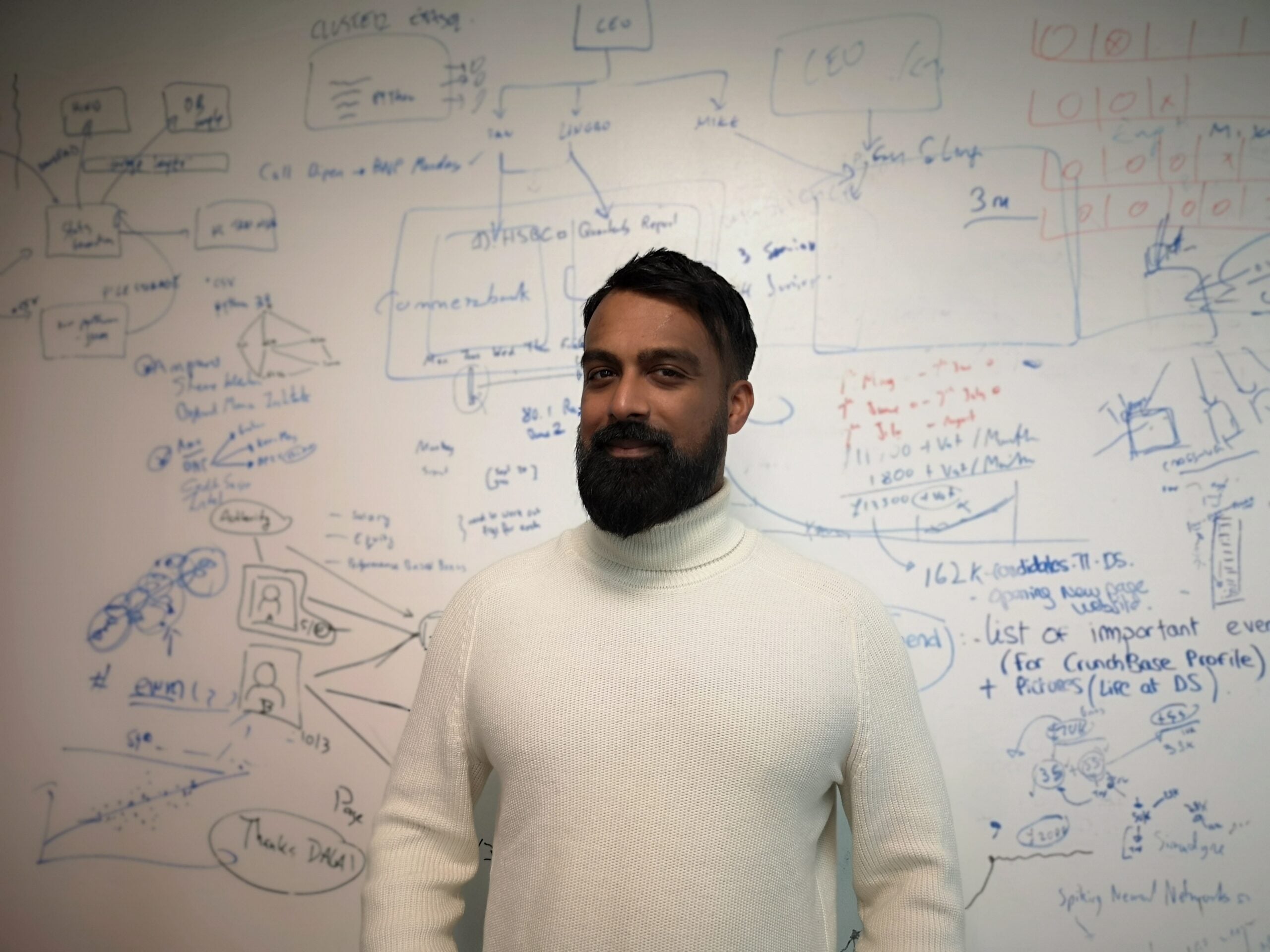
Leslie Kanthan is the founder and CEO of TurinTech, the artificial intelligence (AI) optimisation startup. Founded in 2018, the University College London spun-out venture raised over £4m in a seed funding rounds.
The CEO and his TurinTech co-founders met at the University College London. The startup is also an alumnus of Conception X, a venture builder and a deep tech incubator affiliated to the university. Other alumni from the programme include fake news-busting venture Snappy and cryptocurrency-analysing startup Coinstrats.

Access deeper industry intelligence
Experience unmatched clarity with a single platform that combines unique data, AI, and human expertise.
TurinTech and its CEO are both part of the growing wave of companies raising money on the back of AI technology. Venture capital investment into the sector has skyrocketed in the last decade, according to data from research firm GlobalData. In 2012, just over $1bn was injected into the industry. By 2021, that figure had exploded to $93.4bn.
In the latest in our series of our CEO Chat Q&As, the TurinTech CEO counters claims that AI will steal jobs and reveals the startup's background story.
Eric Johansson: Tell us a bit about yourself. What did you do before founding the company?
Leslie Kanthan: I come from a finance background. Before TurinTech I worked for financial institutions including the likes of Credit Suisse, Bank of America, and Commerzbank. I have a special interest in graph theory, quantitative research, and efficient similarity search techniques. I completed my Ph.D. in Computer Science at University College London, which is where I met the other three TurinTech co-founders.

US Tariffs are shifting - will you react or anticipate?
Don’t let policy changes catch you off guard. Stay proactive with real-time data and expert analysis.
By GlobalDataWhere did the idea come from?
We were all working at financial institutions and over time we became frustrated by the manual machine learning development and code optimisation processes that we did at our jobs. We found them to be time-consuming and resource-intensive, and thought there must be a better way of doing things. We saw a gap in the market and so in 2018, we founded TurinTech to solve this problem and developed our very own AI code optimisation platform.
What's the biggest misconception people have about AI?
I think the biggest misconception people have about AI is that it's going to take over and steal jobs. When, in reality, it’s the exact opposite. AI is actually going to support people with their jobs and will help employees become more efficient.
It’s similar to when word processors were invented. People were worried about being replaced but it didn’t happen. In reality, they helped those who were doing a lot of documentation, writing, and editing, to be more efficient.
What’s one piece of advice would you offer to other CEOs?
A general piece of advice I would offer to other CEOs would be to run your company as horizontally as possible. This will allow people to feel comfortable coming to you with any concerns or recommendations they might have. Which will, in turn, help to influence and shape your decisions, as you’re getting your intel from the ground up.
A piece of AI-specific advice I would offer is to be as fast as possible in adopting the technology. AI can be utilised to benefit the team, and the company, especially at management level. So, it’s better to act sooner rather than later.
What’s the most surprising thing about your job?
I think what I find most surprising about my role is that I have to do a lot of non-technical and non-research-based work, alongside the typical scientific work that I am familiar with. Initially, I thought being a CEO would be a technical role. But being a CEO goes far beyond this. A large part of my job is managing people and managing expectations. So this means I have to know a bit about everything. For example, I need to know the financials, understand the different management roles, familiarise myself with our clients and stakeholders, as well as the research side of things.
What is the most important thing when you want to scale a company?
The most important thing is not to do everything. Companies need to focus on what it is that makes them great, and work on expanding these areas. Another important aspect is surrounding yourself with the best people. Get talented and intelligent people on board, with varied skill sets, in order to help grow what you’re doing. These people are what will help you drive the business in the right direction.
What’s your biggest pet peeve?
I think my biggest pet peeve is someone coming in for a job interview and they haven’t done any research on the company. You sometimes get people who didn’t even look at the company’s website. Someone could come in and be really good at selling themselves, but they won’t be able to understand the most basic part of their role as they don’t know what’s on the website.
What’s the strangest thing you’ve ever done for fun?
We’ve got a great company culture here at TurinTech, and we organised a trip to go-karting. Unfortunately, the day we chose had such bad weather conditions, so we were sliding everywhere, but it was really fun. It felt like Mario-Kart.
What's the most important thing happening in your field at the moment?
I think the most important thing happening at the moment is the concept of ethical AI and its optimisation.
Making models more efficient but also ensuring that ethical biases have been considered, has been a concern lately. It’s important to make sure that AI is optimised ethically as well as efficiently. As you can have a model that is actually too efficient to optimise, as it’s doing things that are considered unethical.
GlobalData is the parent company of Verdict and its sister publications.






